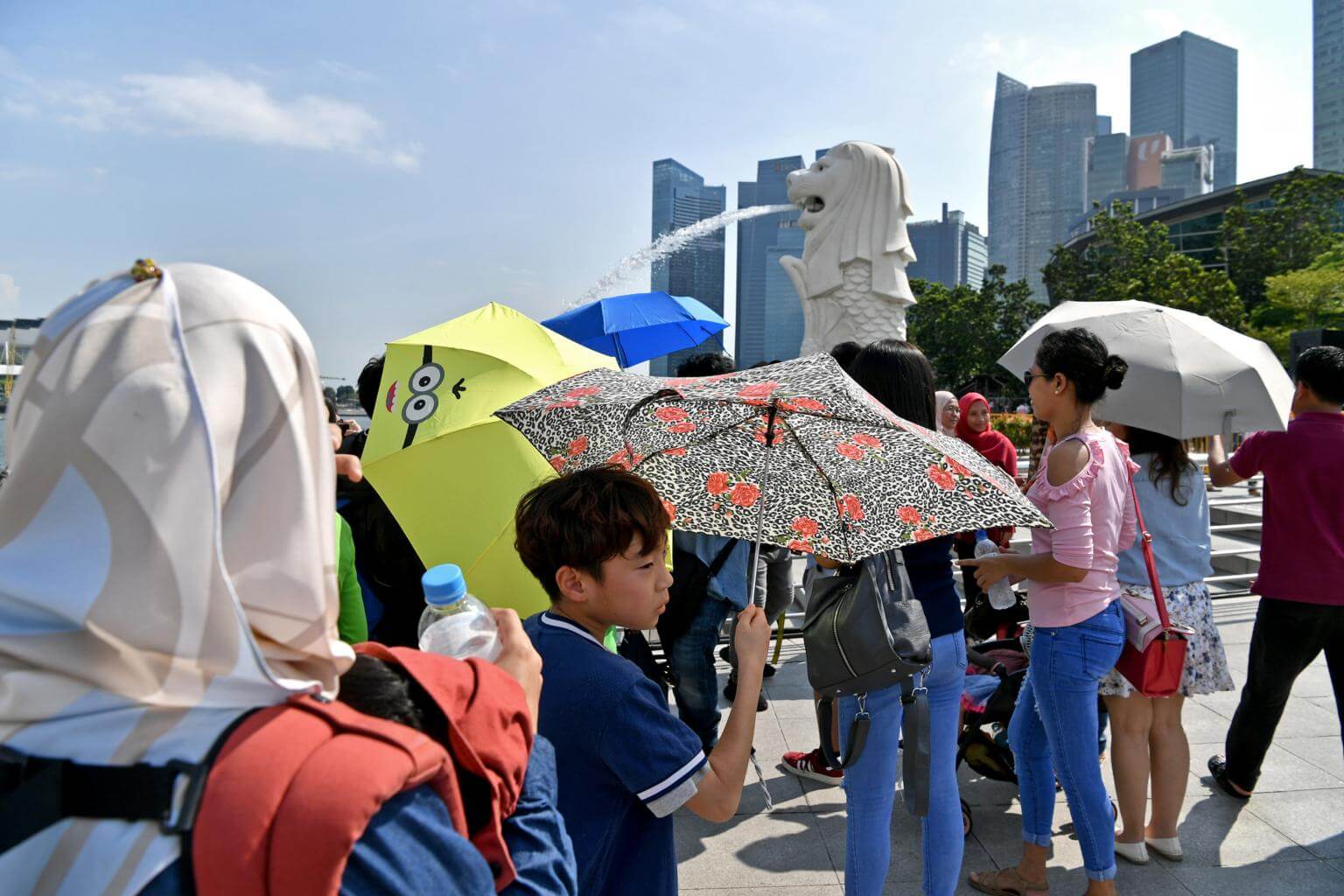Singapore experienced eighth warmest year in 2018, December was second hottest year end in history
Sign up now: Get ST's newsletters delivered to your inbox

Umbrellas, cover-all scarves and water bottles were out in full force as visitors to the Merlion Park braved a hotter-than-usual December in Singapore in 2018.
PHOTO: ST FILE
SINGAPORE - Singapore has had no respite from the heat, with 2018 having clocked temperatures that made it the Republic's eighth warmest year.
Last year, temperatures were consistently above average. The year recorded a mean annual temperature of 27.9 deg C.
This is 0.2 deg C warmer than 2017's mean annual temperature of 27.7 deg C, the Meteorological Service Singapore (MSS) said on Tuesday (Jan 15) in its review of Singapore's weather and climate in 2018.
Notably, December 2018 was the second warmest December in Singapore, with a monthly mean temperature of 27.6 deg C, which is 0.1 deg C behind the hottest December recorded in 2015 (27.7 deg C).
The second half of last December was particularly warm, the MSS said. On Dec 28 and 30, the Changi climate station recorded a daily maximum temperature of 33.8 deg C, tying the record set on Dec 2, 1948, for a December day since Singapore's temperature records started in 1929.
The weatherman also highlighted the fact that Singapore's top 10 warmest years have all occurred in the past 25 years, and eight of them were recorded this century. The last 10 years (from 2009 to 2018) also mark the warmest decade in Singapore, with a mean temperature of 27.89 deg C. This surpassed the previous record (1997 to 2006) by 0.02 deg C.
This, the MSS said, is a sign of the long-term trend of warming in Singapore.
While Singapore's overall temperatures are on the rise, the weather was also been fairly temperamental. In January last year, a monsoon surge from Jan 10 to 14 brought five consecutive days of cool weather across the Island, with the daily minimum temperature dipping to 21.2 deg C on Jan 14 - the longest cool spell in Singapore in at least two decades.
While 2018 was largely a neutral El Nino (associated with hot, dry weather) year with "no significant influence on Singapore's climate", the MSS said that weak La Nina conditions prevailed in the first quarter of 2018.
But the Republic was not spared drastic fluctuations in weather conditions locally - with torrential rain, hailstorms and strong winds affecting the island in the first half on 2018.
On Jan 30, 2018, intense thunderstorms also brought rain and hailstones over northern parts of the island.
And on Jan 31, a waterspout - a rotating column of wind accompanied by intense storms over the sea - developed off Singapore's east coast. Strong wind gusts from the waterspout blew sail boats on the beach a few metres inland.

During the year, heavy rain and strong wind gusts from intense thunderstorms caused several incidents of flash floods, fallen trees and damage to property.
This was especially so on March 30, when strong wind gusts from an intense thunderstorm caused substantial damage to chicken farms in Lim Chu Kang.
The wind gust of 133.3kmh recorded at the nearby Tengah station on that day was the strongest wind gust recorded since 2010.


